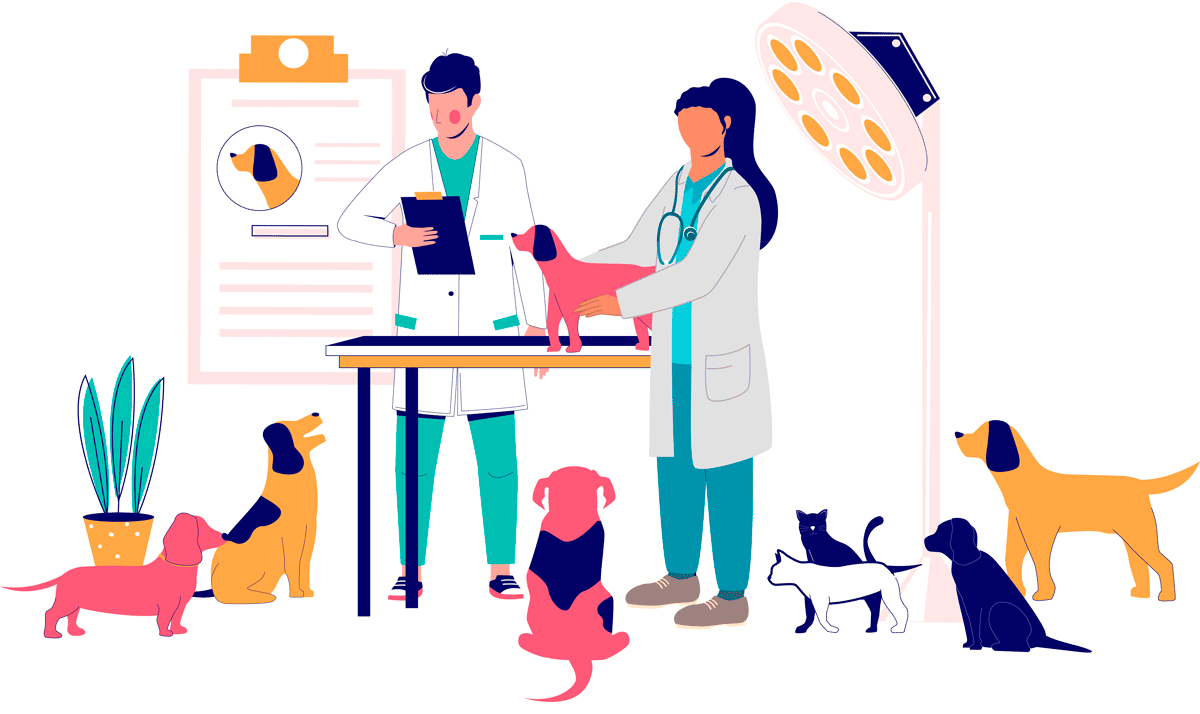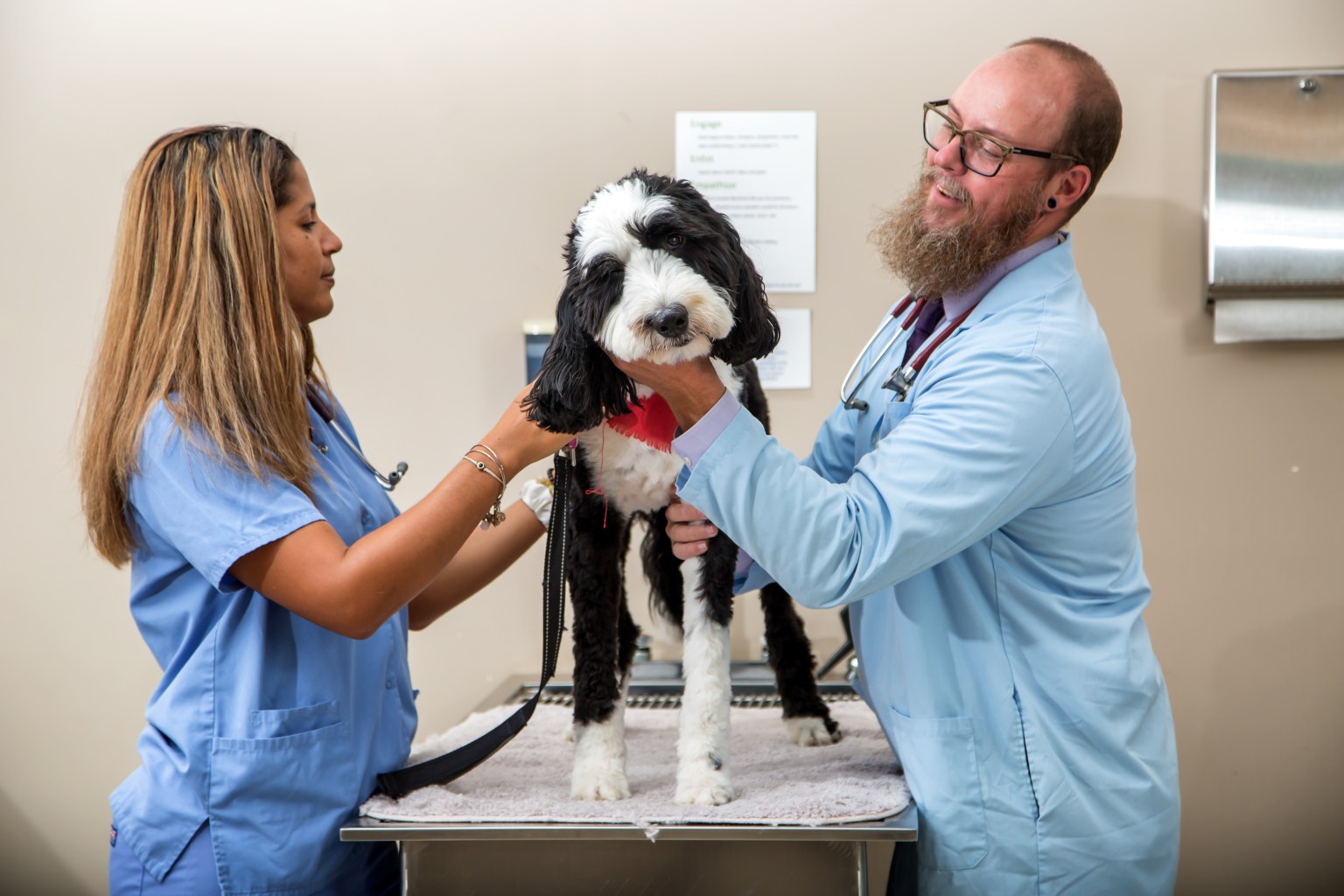Comprehensive Overview to the Solutions Provided by a Vet Oncologist
Veterinary oncology encompasses a vast variety of services targeted at dealing with and diagnosing cancer cells in animals. Veterinary Oncologist. Oncologists use sophisticated diagnostic techniques and supply different treatment options tailored to each pet's needs. They likewise prioritize helpful treatment and offer valuable resources for pet dog owners. Recognizing these services is crucial for making informed choices. What specific elements of vet oncology can notably influence an animal's therapy trip?
Comprehending Vet Oncology
Vet oncology is a specialized area concentrated on diagnosing and dealing with cancer in animals. This self-control encompasses a large range of techniques, from clinical treatments such as chemotherapy and immunotherapy to medical treatments focused on eliminating growths. Veterinary oncologists are educated to identify the unique symptoms of cancer cells in numerous varieties, allowing them to tailor treatment plans to private clients.
In enhancement to typical therapies, veterinary oncology emphasizes helpful care, which plays a crucial role in enhancing the quality of life for afflicted pets. This consists of discomfort administration, dietary assistance, and palliative care choices. Partnership with family pet proprietors is critical, as they are integral to decision-making regarding their pets' treatment paths. As research study breakthroughs, veterinary oncology continues to develop, supplying brand-new hope and boosted end results for animals identified with cancer cells. On the whole, this field is essential for attending to the intricacies of cancer cells in companion animals.
Advanced Diagnostic Techniques
Advanced diagnostic methods play an essential role in vet oncology, providing vital understandings right into the presence and degree of cancer cells in pets. Imaging modalities such as ultrasound, CT scans, and MRI are frequently utilized to envision lumps and assess their qualities. Additionally, biopsy treatments are necessary for obtaining cells examples, enabling conclusive medical diagnosis and tailored therapy strategies.
Imaging Modalities Utilized
Imaging techniques play an essential duty in the diagnosis and management of cancer cells in pets. Veterinary oncologists utilize numerous innovative imaging strategies to assess lump visibility, dimension, and transition. Radiography, or X-rays, provides a preliminary view of bone and upper body problems, while ultrasound provides real-time imaging of soft cells, permitting thorough assessment of interior body organs. Calculated tomography (CT) boosts visualization of intricate physiological frameworks and enables 3D reconstructions, aiding in accurate tumor localization. Magnetic vibration imaging (MRI) is important for soft cells differentiation, specifically in mind tumors. Furthermore, nuclear medication techniques such as positron discharge tomography (FAMILY PET) aid identify metabolic activity within lumps. Jointly, these modalities improve analysis precision, guiding effective treatment methods for oncological people.
Biopsy Procedures Discussed
Complying with the first analysis through imaging modalities, acquiring a conclusive medical diagnosis frequently needs tissue tasting with biopsy treatments. Vet oncologists make use of various biopsy techniques based on the tumor's location and qualities. Fine needle ambition (FNA) is a minimally invasive technique that draws out cells for cytological examination, perfect for surface masses. Core needle biopsies provide larger cells examples and are beneficial for much deeper growths, enabling histopathological evaluation. Surgical biopsies entail excising a part or the entire growth, assisting in detailed assessment. These treatments not just validate the visibility of cancer cells yet additionally aid identify its type and grade, guiding therapy choices. Each biopsy technique is chosen thoroughly to balance analysis precision with individual security and comfort.
Therapy Options for Cancer Cells in Animals
When a pet is detected with cancer, a selection of treatment alternatives end up being readily available to assist enhance and manage the illness lifestyle. Vet oncologists normally recommend a multidisciplinary method customized to the individual family pet's demands, which may consist of surgery, radiation treatment, immunotherapy, or alternative therapies.
Surgical procedure is typically employed to eliminate lumps and affected tissues, possibly leading to total remission in some instances. Radiation therapy intends to target and damage cancer cells, reducing growth dimension and alleviating signs - Veterinary Oncology Services. Immunotherapy harnesses the animal's body immune system to eliminate cancer cells extra efficiently, while alternate treatments may consist of acupuncture or natural supplements to sustain total wellness
Each therapy alternative brings its own benefits and dangers, and vet oncologists work carefully with family pet proprietors to make an extensive strategy that aligns with the pet dog's certain medical diagnosis and the owner's desires. The best objective is to enhance the animal's convenience and quality of life throughout their cancer cells trip.
Chemotherapy for Animals
Chemotherapy is an usual treatment option for animals diagnosed with cancer and is commonly utilized in conjunction with various other treatments described by veterinary oncologists. This therapy includes the management of particular medicines designed to damage and target cancer cells, thus reducing tumor dimension and stopping the spread of the condition. Veterinary oncologists tailor radiation treatment procedures based upon the kind of cancer, the pet's total wellness, and the desired therapy result.
Adverse effects can happen, as these medicines might also affect healthy cells. Usual responses include nausea or vomiting, throwing up, and temporary adjustments in hunger - Veterinary Oncologist. Vet oncologists are furnished to handle these side results effectively, ensuring the family pet's comfort throughout the therapy process. Regular tracking with blood tests and follow-up visits is important to assess the family pet's reaction to radiation treatment and make essential adjustments. Ultimately, radiation treatment can give substantial advantages, improving the lifestyle for pet dogs facing cancer cells medical diagnoses

Radiation Therapy in Veterinary Medication
Radiation therapy serves as a reliable treatment alternative for animals identified with localized tumors, providing a targeted technique to cancer cells monitoring. This technique uses high-energy radiation to harm the DNA of cancer cells, hindering their ability to multiply. It is especially advantageous for tumors that are not amenable to surgical elimination or for instances where surgery might not be practical due to the tumor's location.
Veterinary oncologists customize radiation procedures based upon growth dimension, type, and place, along with the family pet's total click here to find out more health. Treatment can be delivered via exterior beam radiation or brachytherapy, each with distinctive advantages. Commonly, numerous sessions are called for to make best use of effectiveness while lessening negative effects.
Although animals might experience short-lived reactions such as skin irritability, the total purpose is to reduce lumps and minimize symptoms, ultimately improving the animal's prognosis and lifestyle. Accordingly, radiation treatment plays a vital duty in detailed cancer treatment.
Palliative Treatment and Top Quality of Life
Palliative care in veterinary oncology concentrates on improving the high quality of life for animals dealing with incurable diseases, making certain comfort and self-respect in their final days. This specific approach focuses on discomfort management, symptom control, and psychological support. Veterinary oncologists analyze each family pet's specific requirements, tailoring treatments to ease discomfort and improve total wellness.
Techniques might consist of administering medicines for pain alleviation, taking care of queasiness, and dealing with various other upsetting signs. In addition, nutritional assistance is usually offered to keep toughness and enhance hunger. The psychological aspect of palliative care is just as crucial; producing a calm atmosphere helps in reducing stress and anxiety for both animal and owner.
Inevitably, the goal of palliative treatment is to enable animals to enjoy their staying time with as much joy and dignity as feasible. By concentrating on comfort and quality of life, vet oncologists play an important role in making sure that pets and their families browse this challenging journey with empathy and understanding.
Support for Animal Owners Throughout Therapy

Psychological Assistance for Proprietors
Charting the psychological landscape throughout an animal's cancer cells therapy can be an overwhelming experience for owners. The unpredictability bordering medical diagnosis and prognosis can lead to feelings of anxiousness, helplessness, and unhappiness. Vet oncologists recognize the importance of psychological support and typically provide assistance to assist proprietors browse this tough journey. Communication is important; talking about therapy options and prospective results can alleviate some concerns. Furthermore, providing confidence that emotional reactions stand fosters a helpful atmosphere. Many oncology clinics may likewise recommend assistance teams or counseling services tailored for family pet owners, facilitating common experiences. Encouraging proprietors to focus on self-care throughout this moment is important, as their emotional wellness directly influences their animal's convenience and general therapy experience.

Resources and Educational Products
Guiding through the complexities of a pet's cancer cells therapy can be intimidating for Visit Your URL owners, making access to trustworthy sources and academic products necessary. Vet oncologists typically offer an array of handouts, brochures, and online products that explain treatment options, potential side effects, and treatment techniques. These sources assist equip and demystify the procedure family pet owners to make informed decisions. Additionally, several oncology centers offer access to support teams and online forums where owners can get in touch with others facing comparable challenges, cultivating a feeling of neighborhood. Educational webinars and workshops performed by veterinary specialists additionally enhance understanding, guaranteeing that proprietors are well-appointed to navigate their animal's journey via cancer cells therapy with confidence and expertise.
Frequently Asked Questions
Exactly How Can I Prepare My Animal for a Vet Oncology Go To?
Preparing a pet for a vet oncology browse through involves event medical records, keeping in mind signs and symptoms, and ensuring the pet dog is comfy. A tranquil behavior and familiar products can aid ease anxiousness during the consultation.
What Are the Indications My Pet Dog May Have Cancer Cells?
Signs that an animal may have cancer cells consist of inexplicable weight management, relentless throwing up or looseness of the bowels, unusual swellings or swellings, sleepiness, changes in appetite, problem breathing, and changes in actions. Trigger vet attention is essential.
Just How Can I Support My Family Pet Emotionally During Therapy?
Sustaining a family pet psychologically throughout therapy entails giving convenience, maintaining regimens, using mild love, and making sure a calm environment. Engaging in quiet play and regular companionship aids minimize tension and cultivates a sense of safety and security.
Are There Alternative Treatments for Animals With Cancer?
Different treatments for pet dogs with cancer include acupuncture, herbal treatments, and dietary support. These strategies may complement conventional treatments, find out here now promoting general well-being. Consulting with a veterinarian is essential for efficient and risk-free assimilation of alternative therapies.
What Costs Should I Expect for Veterinary Oncology Solutions?
The awaited expenses for veterinary oncology solutions can differ significantly, typically affected by diagnostics, therapies, and ongoing care. Pet dog proprietors ought to plan for expenditures ranging from examinations to specialized treatments, showing the complexity of cancer cells management.
Cooperation with pet dog proprietors is crucial, as they are essential to decision-making concerning their pets' treatment courses. Each therapy option brings its own benefits and dangers, and vet oncologists work closely with pet dog owners to design an extensive plan that lines up with the family pet's certain medical diagnosis and the owner's dreams. Animals may experience temporary reactions such as skin inflammation, the general aim is to reduce growths and reduce signs, ultimately enhancing the animal's diagnosis and top quality of life. Support for pet dog proprietors throughout treatment is important in steering through the emotional obstacles connected with a pet's cancer cells medical diagnosis. Preparing an animal for a vet oncology browse through involves celebration medical records, keeping in mind signs, and ensuring the pet is comfy.